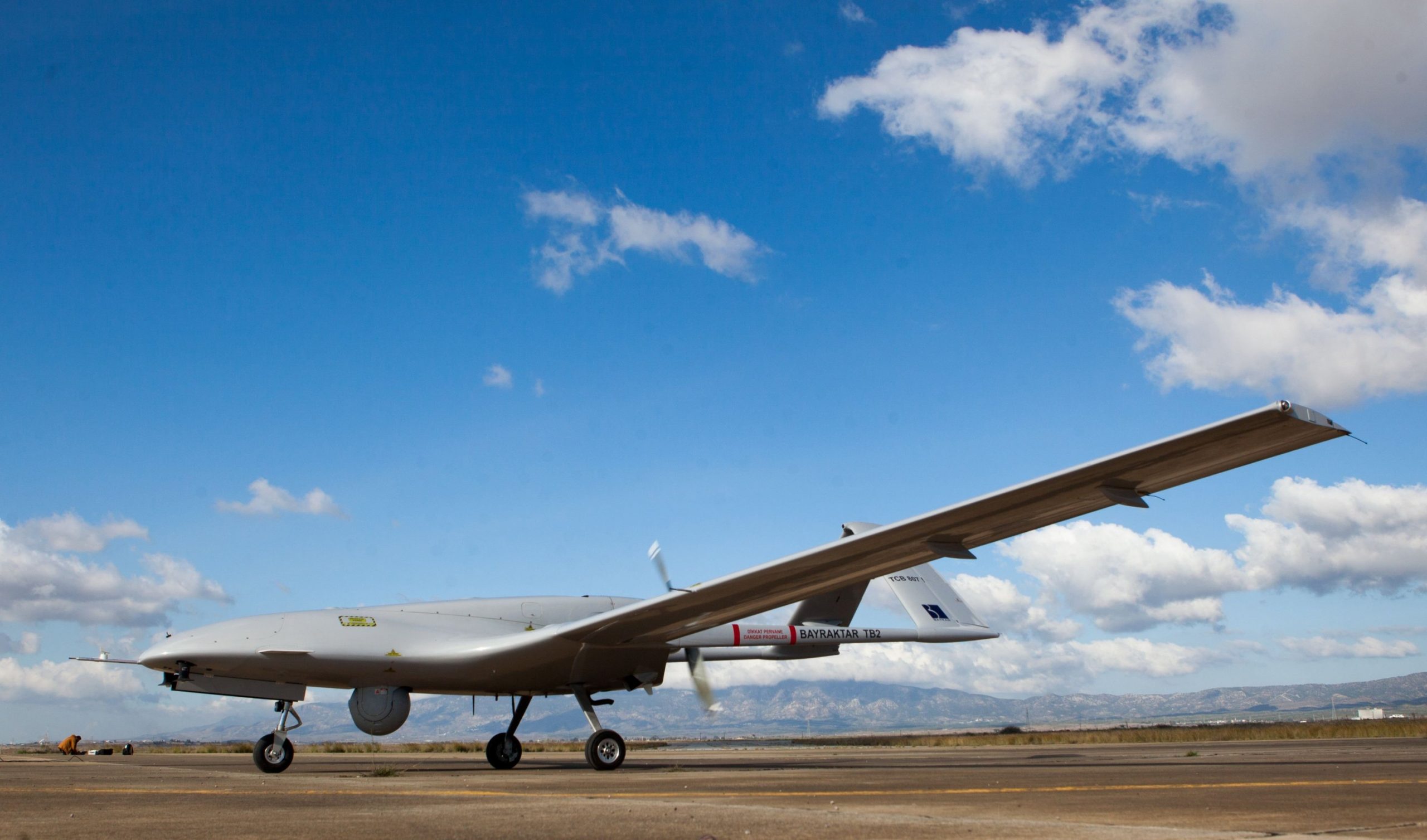African states are increasingly acquiring Turkish drones to fight armed groups after they proved to be effective in various conflicts around the world, writes analyst Paul Melly.
As Ukraine stepped up its initial fightback against Russia’s invasion, and long before Western heavy artillery and rocket launchers started to arrive, there was one weapon that the Kyiv government could already deploy – the Bayraktar TB2 drone.
This Turkish-made weapon had already proved its effectiveness in helping Azerbaijan defeat Armenian armoured forces and snatch back extensive territory in the Nagorno-Karabakh war of 2020.
But admirers of the drone’s capabilities are not confined to eastern Europe and the Caucasus.
Recent weeks have seen a consignment of Bayraktar TB2s delivered to the West African state of Togo, which is struggling to curb the infiltration of jihadist fighters moving south from Burkina Faso.
While in May, Niger acquired half a dozen of these versatile and affordable drones for its military operations against insurgent groups in the Sahel region south of the Sahara Desert, and around Lake Chad.
Other African customers have included Ethiopia, Morocco and Tunisia, while Angola has also expressed interest.
But the first to use these potent surveillance and strike weapons on the continent may well have been the UN-recognised government in Libya – where whey were spotted as early as 2019 and may have helped Tripoli’s forces hold off eastern rebels.
For African buyers, especially poorer countries, drones provide the chance to develop significant air power without the vast cost in equipment and years of elite training required to develop a conventional air strike force of manned jets.
This is a particular attraction for states such as Niger and Togo.
They face the complex challenge of curbing highly motivated and mobile bands of Islamist militants, camping out in the bush and moving quickly through the scrubby terrain of the Sahel by motorbike to stage ambushes and surprise attacks on isolated army and gendarmerie posts, border crossings and civilian communities.
